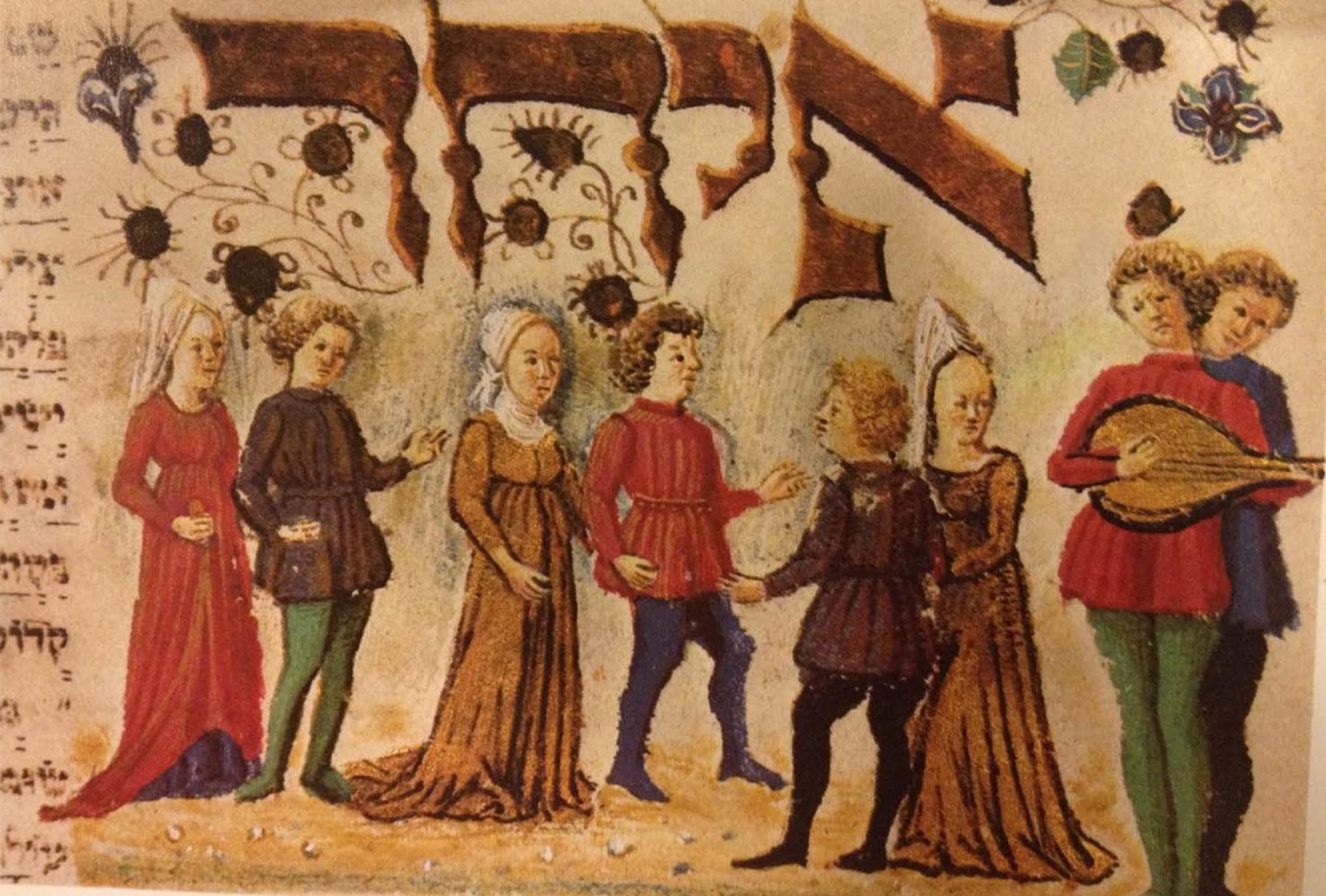This is an archive of prayers written for, or relevant to, socializing, romance, courtship, intimacy, and sex.
Share your prayers, please.
⤷ You are here:
🖖︎ Prayers & Praxes —⟶ 🌳︎ Life cycle —⟶ Living & Struggle —⟶ Mixed Dancing 🡄 (Previous category) :: 📁 Travel 📁 Marriage :: (Next Category) 🡆 Mixed DancingThis is an archive of prayers written for, or relevant to, socializing, romance, courtship, intimacy, and sex. Share your prayers, please. Filter resources by Collaborator Name Filter resources by Tag עבודה זרה avodah zarah | chastity | English vernacular prayer | friends | German vernacular prayer | Jewish Women's Prayers | עין הרע predatory gaze (ill will/evil eye) | protection | social anxiety | תחינות teḥinot | teḥinot in English | Teḥinot in German | יצר הרע yetser hara | 19th century C.E. | 56th century A.M. Filter resources by Category Filter resources by Language Filter resources by Date Range Resources filtered by TAG: “תחינות teḥinot” (clear filter) Sorted Chronologically (old to new). Sort most recent first? “Bei muthmaßlicher Gefahr zur Verführung (In suspected danger of seduction)” was first published in Pereẓ (Peter) Beer’s Gebetbuch für gebildete Frauenzimmer mosaischer Religion (1815), as teḥinah №66 on pp. 184-187 where it was rendered in Judeo-German. The German rendering transcribed above follows teḥinah №66 in Henry Frank’s 1839 edition on pp. 158-160. A variation can also be found in the Beer’s 1843 edition as teḥinah №67 on p. 157-159. . . . Categories: Tags: 19th century C.E., 56th century A.M., chastity, German vernacular prayer, Jewish Women's Prayers, protection, תחינות teḥinot, Teḥinot in German Contributor(s): “Prayer (Oh, Gracious and Almighty God…)” by Grace Aguilar was published posthumously by her mother Sarah Aguilar in Essays and Miscellanies (1853), in the section “Sacred Communings,” pp. 168-169. . . . Categories: Tags: 19th century C.E., 56th century A.M., English vernacular prayer, friends, תחינות teḥinot, teḥinot in English Contributor(s): “Thanksgiving and prayer” by Grace Aguilar was published posthumously by her mother Sarah Aguilar in Essays and Miscellanies (1853), in the section “Sacred Communings,” pp. 213-215. In the UK edition of Sacred Communings (1853) the prayer appears with small variations of spelling and punctuation on pages 128-129. . . . Categories: Tags: Contributor(s): “Prayer (Father in Heaven),” a prayer for the well-being of friends by Grace Aguilar was published posthumously by her mother Sarah Aguilar in the UK edition of Sacred Communings, pp. 71-72. . . . Categories: Tags: Contributor(s): “Prayer before mingling with the world” by Grace Aguilar was published posthumously by her mother Sarah Aguilar in Sabbath Thoughts and Sacred Communings (1853), pp. 73-74. . . . “Prayer (Oh, Father, merciful Father)” by Grace Aguilar was published posthumously by her mother Sarah Aguilar in Essays and Miscellanies (1853), in the section “Sacred Communings,” pp. 179-180. In the UK edition of Sacred Communings (1853) the prayer appears with small variations of spelling and punctuation on pages 103-105. . . . Categories: Tags: 19th century C.E., 56th century A.M., עבודה זרה avodah zarah, English vernacular prayer, תחינות teḥinot, teḥinot in English, יצר הרע yetser hara Contributor(s): “Dedication and Surrender” by Grace Aguilar was published posthumously by her mother Sarah Aguilar in the UK edition of Sacred Communings, pp. 77-79. . . . Categories: Tags: 19th century C.E., 56th century A.M., עבודה זרה avodah zarah, English vernacular prayer, תחינות teḥinot, teḥinot in English, יצר הרע yetser hara Contributor(s):
Stable Link:
https://opensiddur.org/index.php?cat=5497
Associated Image: 
Rothschild Miscellany shows a Jewish custom at the time, mid-15th century, that of mixed dancing. The mixed dancing is that of couples, husband and wives dancing with each other, and not that of unmarried men and women dancing In Italy, where this manuscript was composed, mixed dancing was apparently common during this period. (This image is set to automatically show as the "featured image" in shared links on social media.)
Terms of Use:
Be a mentsch (a conscientious, considerate person) and adhere to the following guidelines:
Additional Notes:
Support this work:
The Open Siddur Project is a volunteer-driven, non-profit, non-commercial, non-denominational, non-prescriptive, gratis & libre Open Access archive of contemplative praxes, liturgical readings, and Jewish prayer literature (historic and contemporary, familiar and obscure) composed in every era, region, and language Jews have ever prayed. Our goal is to provide a platform for sharing open-source resources, tools, and content for individuals and communities crafting their own prayerbook (siddur). Through this we hope to empower personal autonomy, preserve customs, and foster creativity in religious culture.
ויהי נעם אדני אלהינו עלינו ומעשה ידינו כוננה עלינו ומעשה ידינו כוננהו "May the pleasantness of אדֹני our elo’ah be upon us; may our handiwork be established for us — our handiwork, may it be established." –Psalms 90:17
| ||
Sign up for a summary of new resources shared by contributors each week
  |
